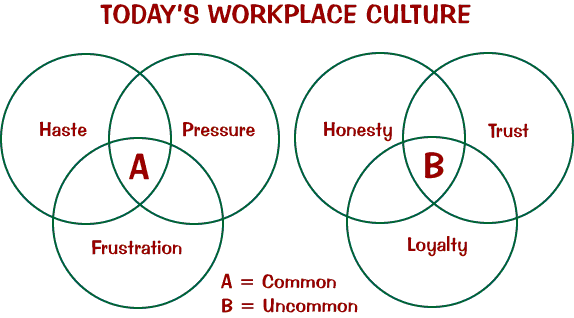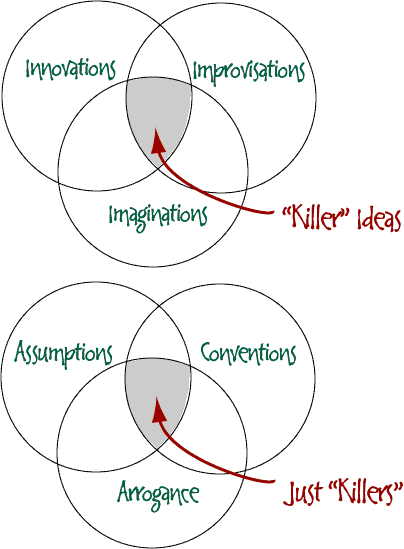The Critical Importance of NOT Doing Things
Why a “don’t do” list is vital to good working habits
Most gurus and teachers spend their time telling people what to do. But if you’re already over-stretched and facing an unending future of still more pressure, that’s not likely to appear palatable. Here’s how NOT doing things can help even the most stressed person find ways to improve their working life.I’m always a little uneasy about all the websites and blots devoted to Getting Things Done and avoiding procrastination. I see the attraction—especially to those who feel frustrated and harassed—but it seems to me that getting things done is less than half of the problem. The greatest part is stopping yourself from spending time on all those unnecessary activities that clutter the working day, force people into staying late to catch up on essential tasks, and provide an enormous workload with almost nothing to show for it.
Stopping unnecessary meetings would boost available working time, lower frustration, cut costs, and free up time for essentials during the normal working day.
Take meetings. My own experience has been that as many as 75% of meetings are unnecessary. They’re mostly called to provide either an illusion of team consensus; to pass information that could be passed in one hundredth of the time by other means; to allow the self-important to have a forum to enjoy hearing their own voices; or to engage in the widespread game of synchronized cover-your-ass. Of the remaining 25% of meetings, close to 100% take too long, are ill-prepared, have poorly coordinated outcomes, or involve far longer in travel time than the meeting itself. Stopping unnecessary meetings would boost available working time, lower frustration, cut costs, and free up time for essentials during the normal working day. Not doing them would get far more done than any fancy scheduling and prioritizing system.Unnecessary communication is another sinkhole for time and effort. All those copied e-mails, circulated memos and minutes, papers marked “FYI,” and constant demands to “keep me in the loop” and make sure this, that, or the other person is “on side.” The culprit here is a deadly combination of fear and ambition: fear that something will happen behind your back that might harm you; and ambition to become so essential that nothing—and I mean nothing—can happen without your implicit approval. All nonsense, of course, but still accepted as normal.
Cutting out all useless communication, and trusting people instead to get on with their jobs and do what they are paid for, could transform productivity overnight. All it would take is the determination to stop behaving in ways that even clinically-diagnosed paranoid schizophrenics would see as crazy.
Another great way to save time and cut waste would be to stop rushing into action before you’ve spent enough time thinking about what you are going to do. Our society places such a ridiculous premium on action over thought that a great deal of activity goes to waste because it was ill-conceived, badly prepared, poorly focused, or simply unnecessary, right from the start. The workplace equivalent of the old saying, “marry in haste, repent at leisure” should be posted in a prominent position on every boss’s desk.
Our society places such a ridiculous premium on action over thought that a great deal of activity goes to waste because it was ill-conceived, badly prepared, poorly focused, or simply unnecessary, right from the start.
An hour’s quiet thought might save a month’s wasted work. A few days of reflection and consideration might prevent 20 people being given a project that they will work on for a year, before it’s finally abandoned as unfeasible. Holding back on angry words, until you can understand clearly what is going on, could save you weeks of trying to repair a shattered relationship.We are action-mad, reactive idiots for much of our working days, and pay a heavy price for the luxury of feeling that we’ve done something instead of merely thinking about what we ought to do.
Each time you’re distracted, it takes extra time to get back to where you were before.
Don’t add to your own distractions. That latest electronic gizmo, that neat computer software, the fashionable cell phone, or the device to check e-mails fifteen times every minute is only going to make your level of distraction greater. Each time you’re distracted, it takes extra time to get back to where you were before. Enough distractions in a day can leave you exhausted from constant effort, but with nothing actually accomplished—which is pretty much what may people experience as routine.If you want to make a serious impact on all those activities which consume time with an inadequate—or non-existent—return for the energy expended, try these:
- Take time to make a list of those activities that consume most of your time.
- Sort out all the ones that you can stop doing with little or no real effect. Cal this List A.
- Make a second list of all the ones you can reduce in frequency or delegate. Call this List B.
- Make a daily “Do not do” list alongside any “to do” list. Make sure that you stop all items on the “ do not do” list. Keep this up until you are no longer even tempted to consider doing them.
- Delegate everything on List B right away.
- Spend the time that you’ve freed up thinking, completing essential tasks, and being creative. Defend it like your life.
- Repeat on a regular basis.
Labels: enjoying work, priorities, stress











